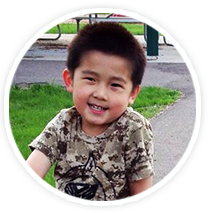Services are free!
Regardless of:
As a parent, it is important to understand how children develop and learn. You are your child's first teacher, and he or she will depend on you for many learning opportunities in everyday experiences.
All children develop at different rates. However, there are some general guidelines called developmental milestones that help parents and professionals better determine if infants and toddlers may be experiencing delays in their development.
Children reach each milestone at their own pace. Milestones include skills in four areas: communication and language, cognition and thinking, social and emotional interactions, and motor or physical movement.
Minor, temporary delays are usually no cause for alarm. An ongoing delay or multiple delays in reaching milestones is called developmental delay.
What causes developmental delays?
A variety of things can cause or contribute to delay, including heredity, problems with pregnancy and premature birth. Some conditions, like Down syndrome for example, are genetic causes for delayed development.
Delays can also be a symptom of underlying medical conditions, including infection, cerebral palsy and fetal alcohol spectrum disorders.
Chronic ear infections during infancy and toddlerhood can cause hearing loss, leading to speech and language delays. Lead poisoning may occur in young children who ingest chipped paint, resulting in cognitive delays.
Some delays have no known underlying cause.
If you suspect your child has a delay
A delay sometimes indicates an underlying condition. Only a doctor or early childhood specialist can diagnose them.
If you suspect your child has a delay, speak with your child’s health care provider or refer the child through Help Me Grow for a no-cost screening or evaluation.
If a delay exists and your child qualifies for Infant and Toddler Intervention or Preschool Special Education services, early intervention may help your child learn and grow. Many children benefit from early intervention supports, and eventually “graduate” and no longer need services.
Additional Resources

If you have concerns about a child's development and think a child might need extra help to learn and grow, don't hesitate to refer a child.
The family will be contacted by the local school district to arrange for a screening or evaluation to determine if their child is eligible for Infant and Toddler Intervention or Preschool Special Education services in Minnesota.
Services are free!
Regardless of:
